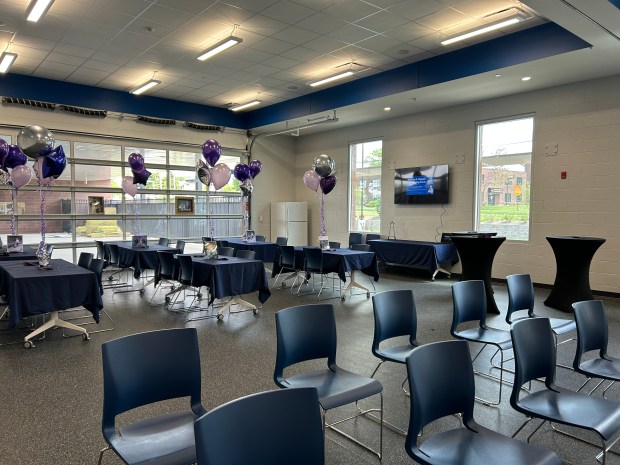The Naperville District 203 School Board is considering several new high school course offerings for the 2025-26 academic year, many of which would give students early college credit.
Among them are Advanced Placement African American Studies, Principles of Biomedical Science, Human Body Systems, Medical Interventions, Food Sustainability, Greenhouse Food Production, Composition and Reflection, and Data Science.
“They are just what our students need. They are just what our students are interested in,” board member Kristin Fitzgerald said at the board’s Monday night meeting.
The courses are in response to student and faculty feedback, said Jayne Willard, assistant superintendent for curriculum and instruction. District officials look at Illinois learning standards, industry trends, student interest and post-secondary preparation when determining which courses will be introduced or removed, she said.
“Our district commitments extend beyond the traditional roles of school systems and structures,” Willard said. “It’s about responding to the evolving needs of our students. We will truly fulfill our purpose when we actively cultivate conditions that align with the changes our students are calling for.”
The majority of the new offerings are weighted or offer early college credit.
Other courses, such as Floral and Plant Industries and Cooking for Wellness, will change course names to better align with a dual credit opportunity through the College of DuPage.
Board member Charles Cush noted that the opportunity to earn college credit while in high school can offer significant costs savings for students and their parents.
Beyond that, many District 203 graduates enter college with significant credits already earned, board member Donna Wandke said. This allows some students to potentially graduate college early or explore additional interests because their prerequisite work is already completed, she said.
Willard said increasing dual credit options also can build students’ confidence by demonstrating they are capable of taking a rigorous college-level course while still in a safe high school environment.
“Increasing our dual credit really allows access for all kids, and I think that’s so important,” she said. “When our kids can experience a college-like class here and be successful, that’s … going to help our students move on post-secondary.”
Students think about their four-year high school plan while in eighth grade but they are not locked into taking those courses, she said. The goal is to find out what the students are interested in, but it’s also equally important to learn what they don’t like studying.
“I just am really glad that this is something they get to explore versus being locked into,” board member Amanda McMillan said. “This is giving them more applications to real-world jobs.”
Students can also earn career pathway diploma endorsements, which require at least two years of career-focused coursework with at least six hours of early college credit.
Many school board members applauded the new course offerings, which are likely to be approved next month.
In Human Body Systems, for example, students examine real-world medical scenarios and use data analysis, medical imaging and modeling to understand how body
systems work together.
With Medical Interventions, students learn about cutting-edge technology and medical innovations used to fight infections, cancer and genetic disorders to prepare for advanced study in the biomedical sciences and health-care careers.
Greenhouse Food Production gives students the opportunity to grow and maintain micro greens, lettuce, herbs, potted flowers, foliage and potted crops. The hands-on lab includes pickling, jamming and fermenting foods, and students will learn how to package, market and sell food.
Those taking the Food Sustainability course will learn how to to use soilless systems, hydroponics, composting and other sustainable growing techniques.
“I see ownership for our kids,” board President Kristine Gericke said. “They are telling us what they want. We are able to deliver on that and continue developing new (classes) for them. It feels like it also chips away at the mold of school. … Of course, there is always the basics and the standards that we want them to have knowledge in, but they can go so much further.”
The board is also considering the district’s recommendation to eliminate several classes due to a decline in enrollment or redundancy with other courses. These include Biotechnology, Aquaculture and Urban Food Production, Food Science, and Graphics 1, 2 and 3.
Michelle Mullins is a freelance reporter for the Naperville Sun.



